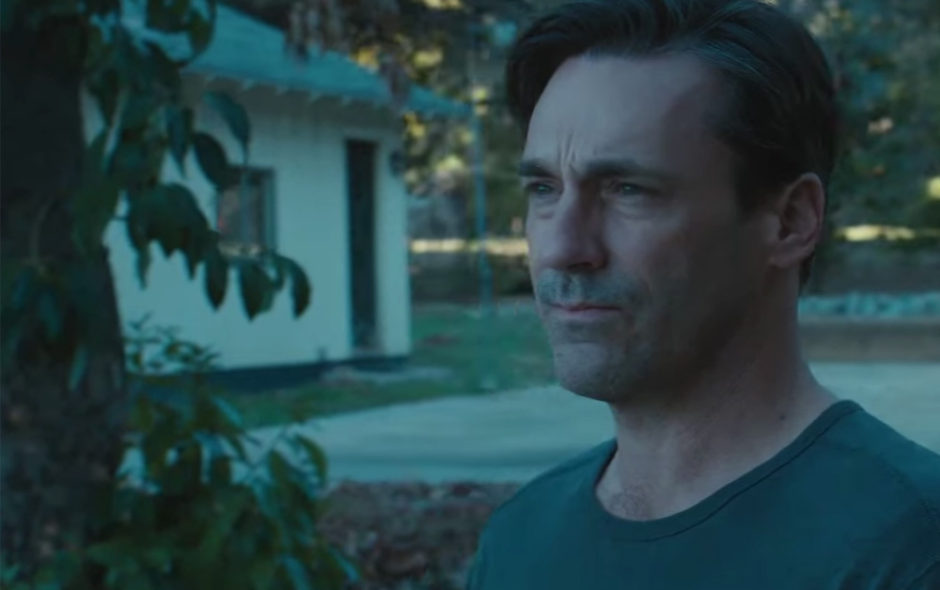“Lives lived” is the kind of simple, weighty sentiment intended to buoy a drama like Mark Pellington and Alex Ross Perry”s Nostalgia, a film about the emotional gravitas of mementos belonging to an intersecting series of characters who are processing grief. But this well-intentioned platitude – uttered at least twice by a self-reflective insurance assessor Daniel (John Ortiz) in the opening act of the film – sinks the film’s thematic momentum instead of anchoring it.
The first half of Nostalgia suffers from self-serious and too-literal dialogue wherein strangers open up to each other about navigating their respective emotional labour. Heavily reliant on self-reflective monologues, the screenplay expects us to immediately relate to these contemplative characters who all sound exactly the same.
Nostalgia begins with one family, then journeys into others’ hidden pockets of familial pain. Upon the request of the fretful, pregnant Bethany (Amber Tamblyn), Daniel visits her grandfather, the retired widower Ronald (Bruce Dern), awaiting death and uninterested in the assorted crap he will inevitably leave behind for Bethany. Daniel then visits Helen (Ellen Burstyn), a weeping widow who describes the devastating experience of having less than a minute to decide what precious object to grab before being trapped in her burning house.
She manages to save her jewellery and a valuable signed baseball passed down multiple generations in her deceased husband’s family. In the aftermath of losing virtually every physical object — including her house — that defined her existence, Helen considers selling the singular keepsake of her husband to ensure financial independence.
She finds an intuitive buyer in Will (Jon Hamm), a baseball memorabilia merchant adept at tactfully handling tearful customers and their emotionally laden possessions. With their conversation, Nostalgia finally finds its footing — maybe thanks to the fact that Helen has a concrete decision to make, and requires advice to make it, or that the two characters have a more even-handed dialogue than the rambling pattern of monologues from the first act.
The film then gravitates to Will’s orbit. For him, financial investment in objects trumps the emotional kind — an opinion shaped by his wife leaving him a decade prior. Burstyn and Hamm’s soulful chemistry is ultimately outmatched by Hamm’s natural dynamic with Catherine Keener, who plays his sister Donna. The two siblings clash over the management of their parents’ remaining belongings, which have been abandoned in their childhood home.
Will sees it all as junk, minus a few valuable records — a concept his young Millennial niece cannot comprehend, as everything physically tangible exists in the cloud for her. Why have things at all when they exist in the unmessy digital realm? A fair point, but one so pointed it spears the viewer with its heavy-handed thematic import. Will scoffs at his sentimental sister’s hoarding tendencies and her rented storage unit, but a few happenstance events — the serendipitous discovery of love letters between their parents, a sudden tragedy in the family — has Will and Donna reeling and reframing their beliefs about precious objects.
Nostalgia has the kind of introspective dialogue that encourages its impressive roster of actors to inflect genuine emotion, and its variety of painful and common experiences lets viewers connect deeply with the material. The film’s thematic throughline, however, feels more than a little forced and performative at times. The bittersweet tone might melt the heart of more sentimental viewers, but it will force a practical audience to laugh at its more absurd moments, like when the ever-respectful Daniel mimes opening a door to Helen’s burnt-down house.
Nostalgia offers varying perspectives on its subject matter but not-so-secretly sells the idea that there is value in nostalgia. Whether or not you buy that thesis depends on your life experience and whether or not you believe holding onto a precious keepsake is an intractable human trait, a manifestation of our undeniable need to find meaning in the world.

